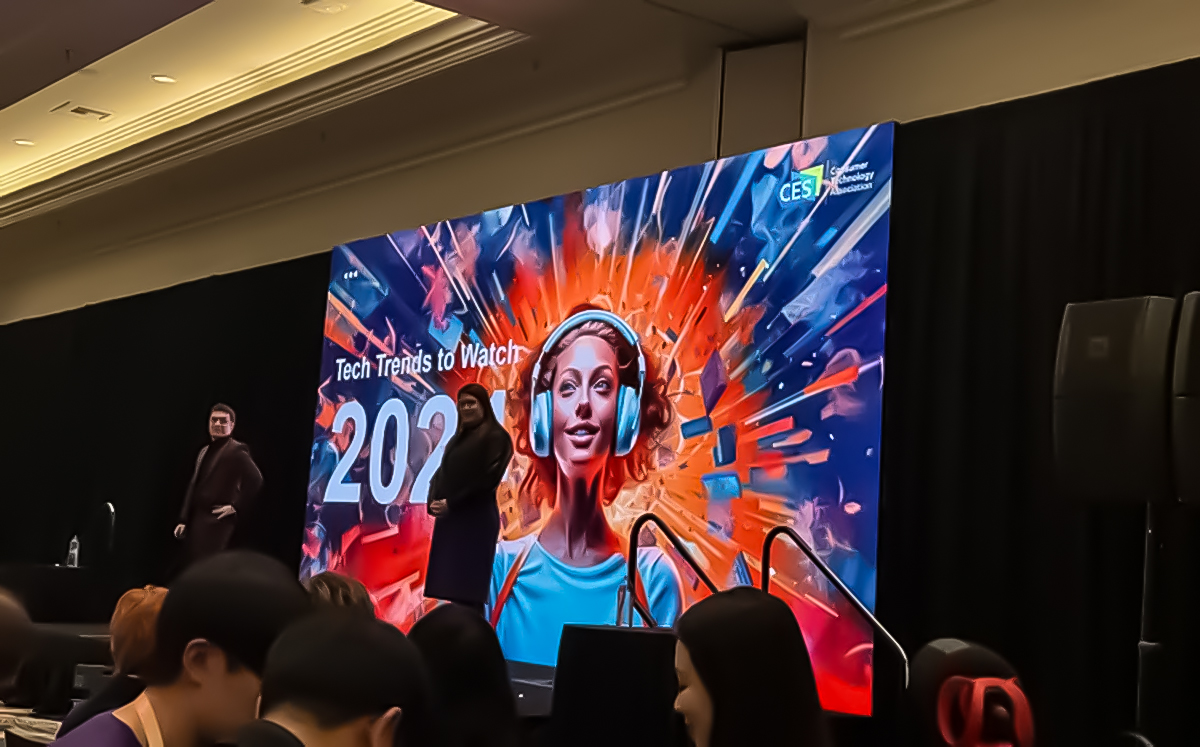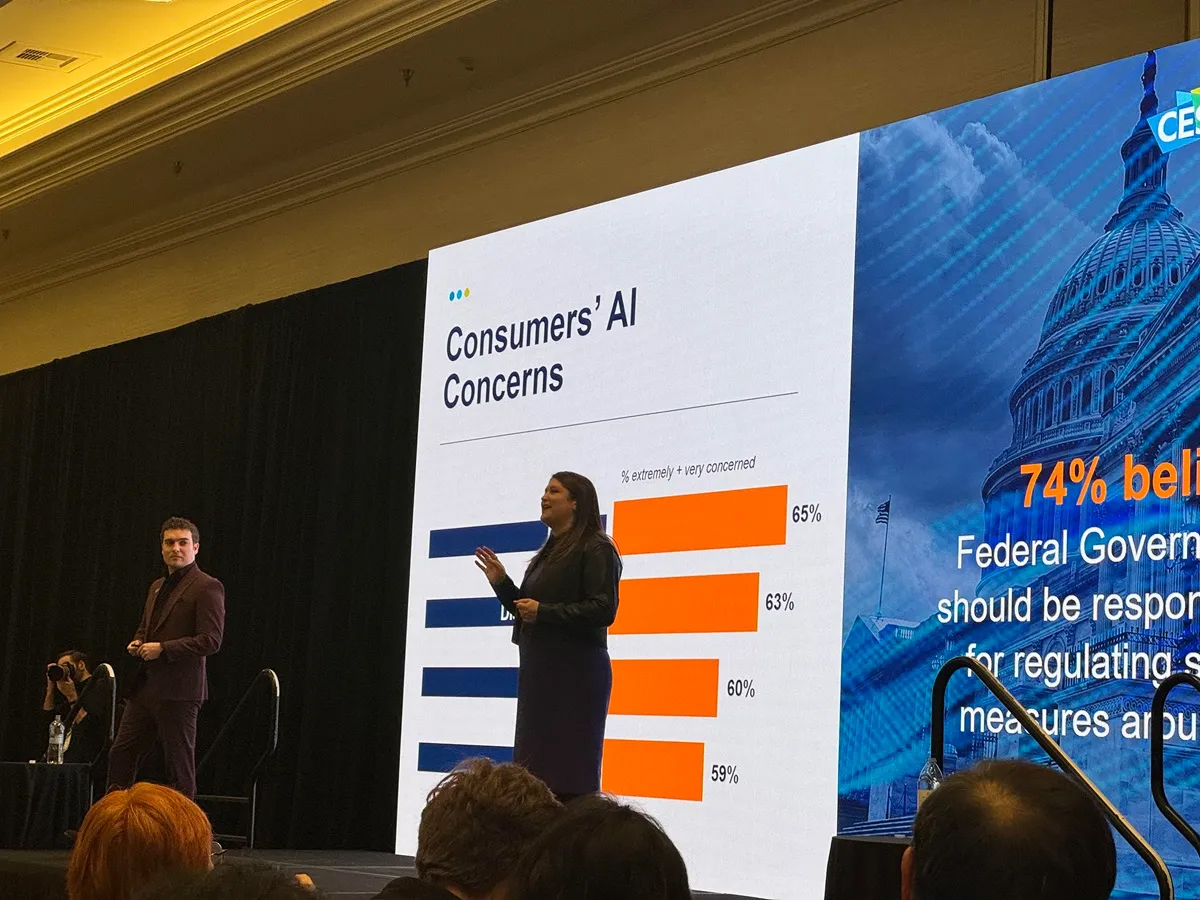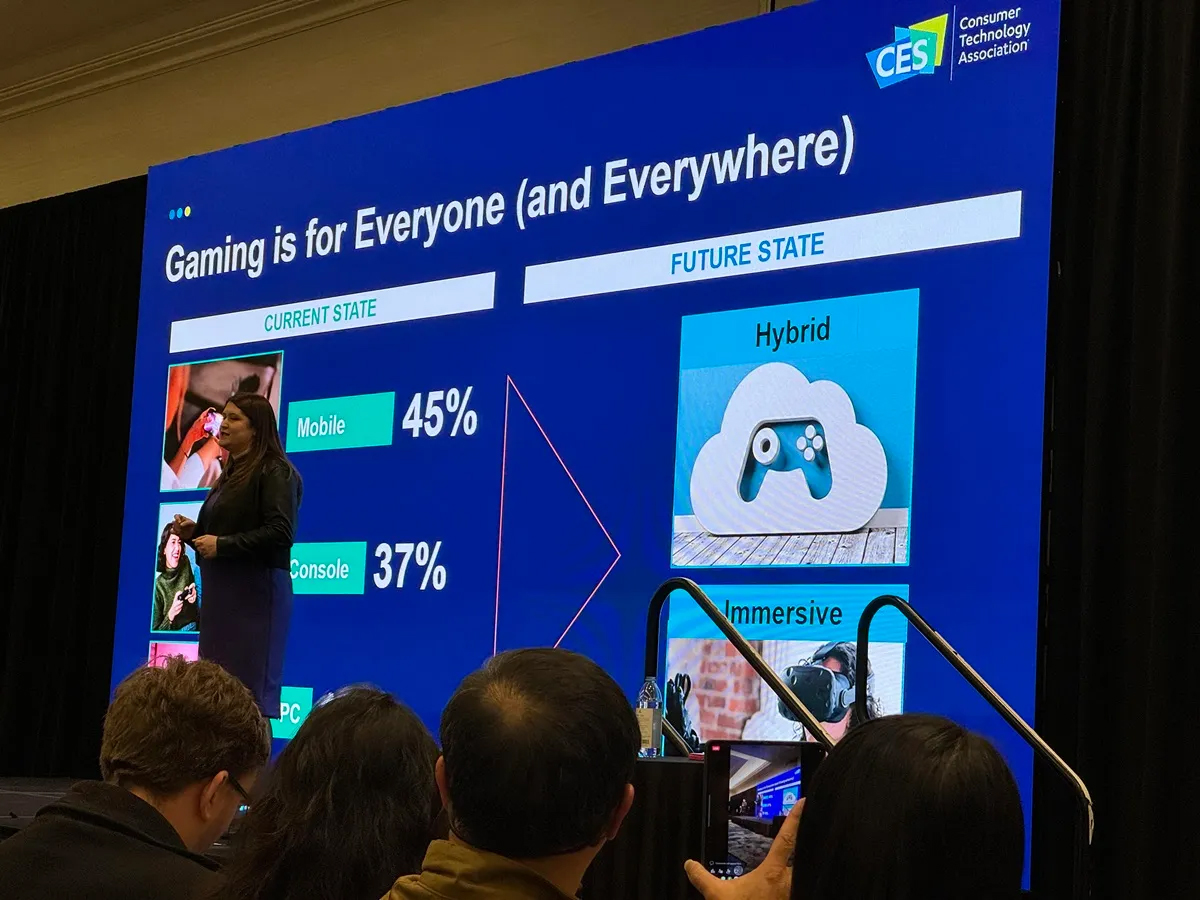
GenZ consumers will dominate demand for
tech products in 2024, as they’re already a quarter of the tech world’s
consumer population.
That’s one of the trends observed by
Jessica Boothe, director of research for the Consumer Technology Association,
the trade group that puts on CES 2024, and Brian Comiskey, director of thematic
programs at the CTA, at the opening session of the big tech trade show in Las
Vegas.
“CES is where the spark of innovation comes to life,” Comiskey said.
The CTA has been around for 100 years. And
it has been gathering research on consumers for decades so it can spot the
trends that are shaping technology and vice versa. GenZ accounts for about 69
million people in the U.S. and a quarter of the world’s population now.
Overall, there are 5.4 billion people on the planet, including 90% of the
global GenZ population in emerging markets.
While 92% of the population is online in
the U.S., just 46% are online in India, 55% in Nigeria, 73% in China and 87% in
the European Union. A billion more people will come online by 2027, the CTA
said, and Elon Musk’s Starlink is going to be a big contributor to that. Add to
that expectations for 6G wireless as well as the internet of things.
One of the things coming, Comiskey said, is
Li-Fi, or using light to transmit data. Comiskey said much of the consumer
gadget world will revolve around AI and robotics, cloud and cybersecurity. Big
topics at the show include AI, sustainability and inclusivity, Boothe said.
While generative AI thanks to ChatGPT is
big, AI is going to be bigger than that with chipmakers like Intel, AMD, Nvidia
and Qualcomm committing to AI computers and Microsoft announcing its Copilot
key as the first new addition to the Windows keyboard in 30 years. Comiskey
described AI as a horizontal wave of technological innovation that cuts across
all industries.
“AI is honestly going to be everywhere,” Comiskey said.
He noted that nine out of 10 U.S. adults
are familiar with AI, and those familiar with it tend to have positive
sentiments around AI. But they have concerns about privacy, disinformation and
job loss. And 74% believe the federal government should be regulating safety
around the use of AI.
Comiskey noted that Siemens will focus its
talk on the industrial metaverse, with robotics technology that will be
captured in digital twins, where a factory is simulated first and then built in
real life. The real-life factory will be instrumented with sensors to refine
the design of the virtual factory.
CTA touted new technologies like
lightweight exoskeletons that allow you to lift more weight than you can
otherwise. (At CES Unveiled last night, I tried out the Muscle Suit from
Innophys, which enabled me to life more weight — making 25 pounds feel like
you’re lifting five pounds. I saw a woman lift a man while wearing the
exoskeleton.
Comiskey noted sustainability is both
revolutionary and evolutionary as a trend. He noted that nuclear fusion
ignition was achieved multiple times in 2023. And he said electric vehicles, renewable
power and consumer electronics recycling is pushing forward. The Paris accords
on climate change were signed in 2017, and we are halfway to the target of
hitting climate change goals by 2030. Some countries are accelerating their
efforts to meet targets.

In the U.S., $97 billion has been allocated
to achieve carbon-free electricity by 2035 and net zero energy use by 2050. To
that end, Air Farm from Nit Bar is a smart food that can grow sustainably in
deserts.
Boothe said companies are embracing inclusive
tech design, and she noted companies with diverse management teams see 19%
higher revenue than other companies. She said there are 1.8 billion people in
the world with disabilities, and it’s a market that can be targeted with
accessible products.
CES Unveiled featured a number of products
aimed at disabled people. Ives from France showed off the Iris chatbot that can
interpret sign language for deaf people. It is dubbed the Iris Signbot. The
women’s health market is expected to hit $1.2 trillion by 2027, and there are
products like a cooling pad that can detect hot flashes and deliver cooling to
the pad in the middle of the night.
The speakers noted how CES is the largest
mobility show in the world, with tons of electric vehicles on display, including
tech for wireless EV charging. Brunswick has an electric otor for boats, and
Supernal has a vertiport to show off its design for a flying car. Kia has
purpose-built vehicles for tasks like delivery.
Boothe said that TV will become the
intelligent hub from the home where you can control everything in the home’s
internet of things ecosystem. LG showed just that this morning.
The rise of gaming

Boothe noted the success of films like The
Super Mario Bros. Movie, which generated $1.36 billion at the box office, and
TV shows like The Last of Us. Comiskey noted there are 40 TV series and movies
based on games in the works, and she noted the rush to remake retro games and
bring them to modern graphics. They noted that Newzoo estimates there are three
billion gamers around the world.
The CTA also noted a shift in revenues for
consumer electronics, with 64% coming from hardware and the remainder coming from
software.
(Source: VentureBeat)